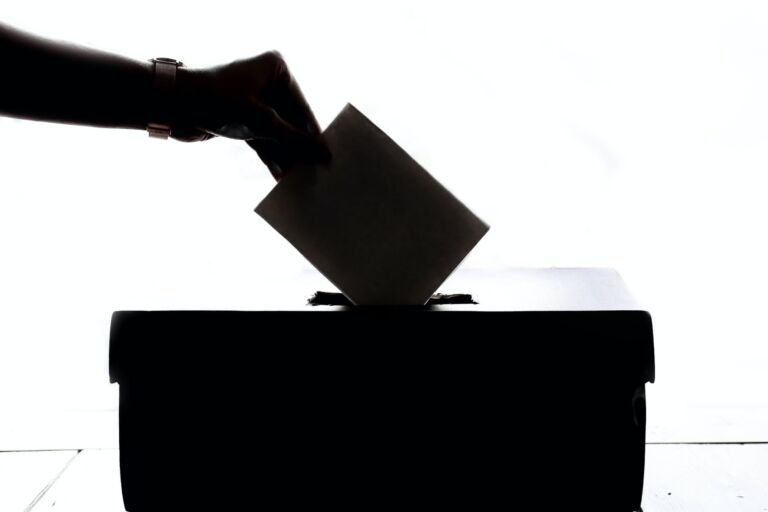The U.S. Supreme Court ruled today on an Arizona case that has direct implications for North Carolina election law.
The high court upheld, in Brinovich v. Democratic National Committee, two provisions of Arizona election law: a ban on ballot harvesting and a requirement that those who vote in a precinct on election day vote in the correct precinct (page 2):
Arizona’s out-of-precinct policy and HB 2023 [ban on ballot harvesting] do not violate §2 of the VRA, and HB 2023 was not enacted with a racially discriminatory purpose.
The 6-3 ruling was written by Justice Samuel Alito.
The Ruling Has limited Scope Regarding the Voting Rights Act
One thing the court did not do was create a definitive test for lower courts to follow for examining cases brought under Section 2 of the Voting Rights Act (VRA). The court noted a cottage industry has formed around lawsuits about the “time, place, or manner for casting ballots” based on Section 2 (page 13, page 7 of the majority opinion):
In the years since Gingles [1986], we have heard a steady stream of §2 vote-dilution cases, but until today, we have not considered how §2 applies to generally applicable time, place, or manner voting rules. In recent years, however, such claims have proliferated in the lower courts.
However, while the court made it clear that the Arizona statutes did not violate Section 2 of the VRA, the justices declined to use the case to define a test for future claims under Section 2 (pages 18-19, pages 12-13 of the majority opinion):
[W]e think it prudent to make clear at the beginning that we decline in these cases to announce a test to govern all VRA §2 claims involving rules, like those at issue here, that specify the time, place, or manner for casting ballots. Each of the parties advocated a different test, as did many amici and the courts below… All told, no fewer than 10 tests have been proposed. But as this is our first foray into the area, we think it sufficient for present purposes to identify certain guideposts that lead us to our decision in these cases.
So, while the ruling provides some protection for laws designed to prevent election fraud, there are no clear guidelines for lower courts to apply in similar cases, meaning that we will continue to see similar lawsuits reach the high court in the future.
The Ruling is Good News for Election Security in North Carolina
Despite its limited scope, the case provides some good news for North Carolina.
First (and this is not new), the court affirms that preventing election fraud and opportunities for voter intimidation are both legitimate state interests.
One strong and entirely legitimate state interest is the prevention of fraud. Fraud can affect the outcome of a close election, and fraudulent votes dilute the right of citizens to cast ballots that carry appropriate weight. Fraud can also undermine public confidence in the fairness of elections and the perceived legitimacy of the announced outcome.
Ensuring that every vote is cast freely, without intimidation or undue influence, is also a valid and important state interest. This interest helped to spur the adoption of what soon became standard practice in this country and in other democratic nations the world round: the use of private voting booths.
The majority also explicitly rejected the claim that “disparate impact” (election laws not affecting all groups in exactly equal proportion) by itself is sufficient evidence to require that an election law be overturned. The court’s majority specifically admonished the minority’s attempt to ignore “the totality of circumstances” of election laws in relation to Section 2 in favor of disparate impact. The sole reliance on disparate impact when evaluating election laws under Section 2 is both impractical and immoral (pages 30-31, pages 24-25 of the majority opinion):
With all other circumstances swept away, all that remains in the dissent’s approach is the size of any disparity in a rule’s impact on members of protected groups. As we have noted, differences in employment, wealth, and education may make it virtually impossible for a State to devise rules that do not have some disparate impact. But under the dissent’s interpretation of §2, any “statistically significant” disparity—wherever that is in the statute—may be enough to take down even facially neutral voting rules with long pedigrees that reasonably pursue important state interests.
This does not mean that the disparate impact of election laws cannot be considered, only that it must be considered along with other factors such as the size of the burden imposed by a voting rule, the deviation from standard election practice when Section 2 was amended in 1982, the totality of opportunities to vote within a state’s election system, and legitimate state interests in having elections conducted relatively free of fraud and intimidation.
Given how often partisan litigants go after North Carolina’s election laws, the guidelines provided by Brinovich v. Democratic National Committee could go a long way towards protecting those laws in court. Disparate impact claims, and little else, are at the heart of lawsuits against North Carolina’s voter ID law and other lawsuits against our state’s election laws.
So, while the scope of the ruling is limited, it is welcome news for protecting the security of North Carolina’s elections.


